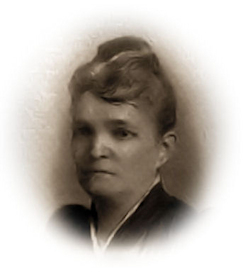Friday, June 5th, 1863. (In the cellar.)—Wednesday evening H. said he must take a little walk, and went while the shelling had stopped. He never leaves me alone long, and when an hour had passed without his return I grew anxious; and when two hours, and the shelling had grown terrific, I momentarily expected to see his mangled body. All sorts of horrors fill the mind now, and I am so desolate here; not a friend. When he came he said that passing a cave where there were no others near, he heard groans, and found a shell had struck above and caused the cave to fall in on the man within. He could not extricate him alone, and had to get help and dig him out. He was badly hurt, but not mortally. I felt fairly sick from the suspense.
Yesterday morning a note was brought H. from a bachelor uncle out in the trenches, saying he had been taken ill with fever, and could we receive him if he came? H. sent to tell him to come, and I arranged one of the parlors as a dressing-room for him, and laid a pallet that he could move back and forth to the cellar. He did not arrive, however. It is our custom in the evening to sit in the front room a little while in the dark, with matches and candles held ready in hand, and watch the shells, whose course at night is shown by the fuse. H. was at the window and suddenly sprang up, crying, “Run!”—”Where?”—”Back!”
I started through the back room, H. after me. I was just within the door when the crash came that threw me to the floor. It was the most appalling sensation I’d ever known. Worse than an earthquake, which I’ve also experienced. Shaken and deafened I picked myself up; H. had struck a light to find me. I lighted mine, and the smoke guided us to the parlor I had fixed for Uncle J. The candles were useless in the dense smoke, and it was many minutes before we could see. Then we found the entire side of the room torn out. The soldiers who had rushed in said, “This is an eighty-pound Parrott.” It had entered through the front and burst on the pallet-bed, which was in tatters; the toilet service and everything else in the room was smashed. The soldiers assisted H. to board up the break with planks to keep out prowlers, and we went to bed in the cellar as usual. This morning the yard is partially plowed by two shells that fell there in the night. I think this house, so large and prominent from the river, is perhaps mistaken for headquarters and specially shelled. As we descend at night to the lower regions, I think of the evening hymn that grandmother taught me when a child:
“Lord, keep us safe this night,
Secure from all our fears;
May angels guard us while we sleep,
Till morning light appears.”
Note: To protect Mrs. Miller’s job as a teacher in post-civil war New Orleans, her diary was published anonymously, edited by G. W. Cable, names were changed and initials were generally used instead of full names—and even the initials differed from the real person’s initials. (Read Dora Richards Miller’s biographical sketch.)
